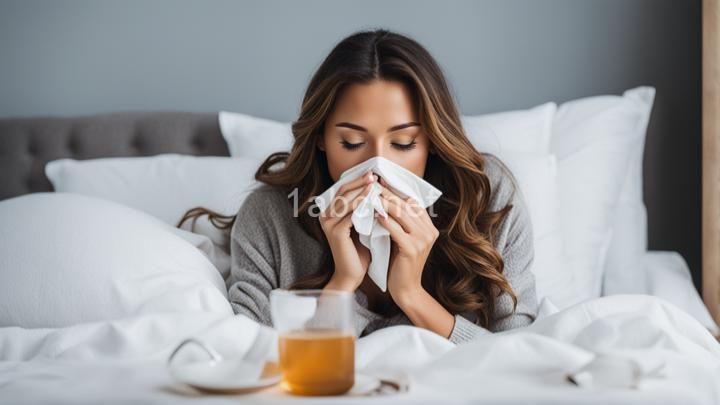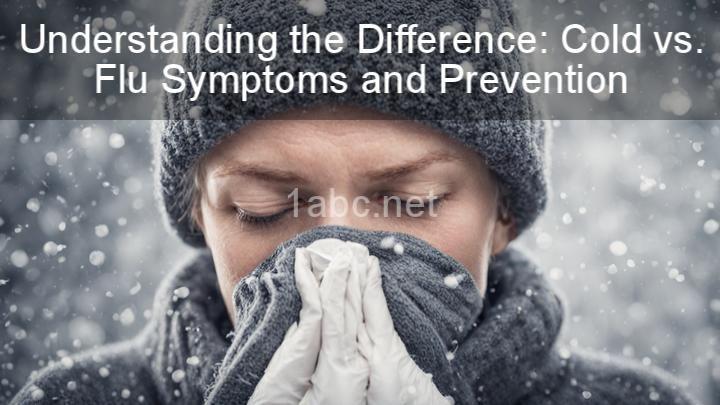How Sleep Deprivation Impacts Your Immune System and Tips for a Better Sleep

Introduction:
Welcome readers to the blog post! We're so glad you're here. Today, we want to talk about something that affects us all: sleep deprivation. We understand how challenging it can be to get a good night's sleep, and we're here to help. In this blog post, we'll explore the impact of sleep deprivation on your immune system and provide you with some practical tips for achieving better sleep. Your well-being is important to us, so let's dive in!
Section 1: The Impact of Sleep Deprivation on Your Immune System
Sleep is not just a luxury; it's a necessity for your overall health. When you don't get enough sleep, your immune system takes a hit. Simple as that. You see, sleep plays a crucial role in maintaining a healthy immune system. It's during sleep that your body repairs and rejuvenates itself, and this includes your immune system.
Now, let's break it down in simple terms. Your immune system is like a superhero squad that protects your body from harmful invaders like bacteria and viruses. When you're sleep-deprived, this superhero squad becomes weaker and less effective. It's like taking away their superpowers! As a result, you become more vulnerable to illnesses and infections.
Section 2: Understanding the Importance of Quality Sleep
So, why is quality sleep so important for your immune system? Well, it's because sleep helps regulate immune responses. During sleep, your body produces proteins called cytokines that are essential for fighting off infections and inflammation. These cytokines are like the frontline soldiers in your immune system, and they need their rest to perform at their best.
Think of it this way: when you don't get enough quality sleep, your immune system is like a tired soldier on the battlefield. They're sluggish, less alert, and more prone to making mistakes. This leaves you open to attacks from bacteria and viruses.
Section 3: Tips for a Better Sleep
Now that we understand the impact of sleep deprivation on your immune system, let's talk about some practical tips for achieving better sleep. Remember, we're here to help, so don't worry about feeling overwhelmed. These suggestions are meant to be helpful, not to add more stress to your life.
Subsection 3.1: Creating an Ideal Sleep Environment
One of the first steps to better sleep is creating an ideal sleep environment. Your bedroom should be a sanctuary for rest and relaxation. Keep the room cool, dark, and quiet. Consider investing in blackout curtains, earplugs, or a white noise machine if necessary. Remember, a calm and peaceful bedroom sets the stage for a good night's sleep.
Subsection 3.2: Establishing a Relaxing Bedtime Routine
Developing a consistent bedtime routine can work wonders for your sleep. Engage in activities that promote relaxation and signal to your body that it's time to wind down. Reading a book, taking a warm bath, or practicing relaxation exercises like deep breathing or meditation are great options. Find what works best for you and make it a regular part of your evening routine.
Subsection 3.3: Implementing Healthy Habits Throughout the Day
It's not just about what you do before bed; it's about how you live your day. Establish healthy habits that support better sleep. Regular exercise can help regulate your sleep-wake cycle, but try to avoid vigorous exercise close to bedtime as it can be stimulating. Additionally, be mindful of your caffeine intake and avoid consuming it too close to bedtime. Remember, moderation is key, so find a balance that works for you.
Conclusion:
We've covered a lot of ground in this blog post, but the main takeaway is that sleep deprivation can have a significant impact on your immune system. Prioritizing quality sleep is crucial for maintaining a healthy immune system and protecting yourself from illnesses.
We hope these tips for achieving better sleep have been helpful to you. Remember, small changes can make a big difference. Start by creating an ideal sleep environment, establishing a relaxing bedtime routine, and implementing healthy habits throughout your day. Your immune system will thank you!
On that note, we want to remind you to be kind to yourself. We know that achieving the perfect night's sleep isn't always possible, and that's okay. Life happens, and sometimes sleep gets disrupted. But by making an effort to prioritize sleep and implement these tips, you're taking a step in the right direction.
Here's to better sleep and a stronger immune system! Sleep tight, friends.
FREQUENTLY ASKED QUESTIONS
How does sleep deprivation impact the immune system?
Sleep deprivation can have a significant impact on the immune system. When we don't get enough sleep, our body's ability to fight off infections and viruses is compromised. This is because sleep is crucial for the functioning of our immune system.During sleep, our body produces and releases cytokines, which are proteins that help regulate immune responses. These cytokines play a key role in protecting our body against infections and inflammation. However, when we are sleep deprived, the production of these cytokines is reduced, making us more susceptible to illnesses.
In addition, sleep deprivation can also affect the production of antibodies, which are proteins that help to identify and neutralize harmful pathogens in the body. Without enough sleep, our body's ability to produce these antibodies is reduced, making it harder for us to fight off infections.
Furthermore, sleep deprivation can lead to chronic inflammation in the body. Inflammation is a normal immune response to injury or infection, but when it becomes chronic, it can contribute to the development of various health conditions, including autoimmune disorders and cardiovascular diseases.
Moreover, sleep deprivation can disrupt the balance of hormones in our body, such as cortisol. Cortisol plays a crucial role in regulating the immune response, and when its levels are disrupted due to lack of sleep, it can have a negative impact on our immune system.
Overall, sleep deprivation weakens our immune system and makes us more susceptible to infections, viruses, and chronic inflammation. Getting enough quality sleep is essential for maintaining a strong and healthy immune system.
Can sleep deprivation make me more susceptible to getting sick?
Yes, sleep deprivation can indeed make you more susceptible to getting sick. When we don't get enough sleep, our immune system becomes compromised, making it harder for our body to fight off infections and viruses. Lack of sleep can weaken our body's natural defenses, leaving us more vulnerable to illnesses.During sleep, our immune system releases proteins called cytokines that help combat infections and inflammation. However, when we are sleep deprived, the production of these cytokines decreases, reducing our body's ability to fight off pathogens effectively. As a result, we become more susceptible to catching colds, flu, and other infections.
Moreover, sleep deprivation also affects the production of antibodies, which are essential for our immune system's ability to recognize and neutralize harmful bacteria and viruses. Without sufficient sleep, our body's antibody response is weakened, making it easier for infections to take hold and spread.
Additionally, sleep deprivation can lead to chronic inflammation in the body. Inflammation is a natural response of the immune system to injury or infection, but when it becomes chronic, it can contribute to the development of various health conditions, including cardiovascular diseases, diabetes, and autoimmune disorders.
In summary, getting enough sleep is crucial for maintaining a strong immune system. By prioritizing quality sleep, you can enhance your body's ability to fight off infections and reduce the risk of falling sick. So, make sure to prioritize sleep and give your immune system the rest it needs to keep you healthy.
How much sleep do I need to maintain a healthy immune system?
To maintain a healthy immune system, it is important to get an adequate amount of sleep. The amount of sleep needed varies depending on several factors such as age, overall health, and lifestyle. However, on average, adults should aim for about 7-9 hours of sleep per night. This allows your body to rest and recover, promoting a strong immune system. Keep in mind that individual needs may vary, so it's important to listen to your body and prioritize quality sleep. So, make sure to carve out enough time for a good night's rest to support your immune system's health.
What are some tips for getting better sleep?
Getting better sleep is essential for our overall well-being. Here are some tips to help you improve your sleep quality:
-
Stick to a consistent sleep schedule: Try to go to bed and wake up at the same time every day, even on weekends. This helps regulate your internal body clock and promotes better sleep.
-
Create a relaxing bedtime routine: Establish a soothing routine before bedtime to signal your body that it's time to wind down. This could include activities like reading a book, taking a warm bath, or practicing relaxation techniques such as deep breathing or meditation.
-
Make your bedroom a sleep-friendly environment: Ensure that your bedroom is cool, quiet, and dark. Use curtains or blinds to block out any excess light, and consider using earplugs or a white noise machine to drown out any disruptive noises.
-
Limit exposure to electronic devices: The blue light emitted by electronic devices like smartphones, tablets, and laptops can interfere with your sleep. Try to avoid using these devices at least an hour before bedtime or use a blue light filter.
-
Watch what you eat and drink: Avoid heavy meals, caffeine, and alcohol close to bedtime. These substances can disrupt your sleep patterns and make it harder to fall asleep or stay asleep throughout the night.
-
Exercise regularly: Engaging in regular physical activity can help improve sleep quality. However, try to avoid exercising too close to bedtime, as it may leave you feeling energized and make it harder to fall asleep.
-
Manage stress: High levels of stress can interfere with your ability to sleep. Find healthy ways to manage stress, such as practicing relaxation techniques, talking to a friend or therapist, or engaging in activities that bring you joy.
Remember, everyone's sleep needs are different, so it's important to find what works best for you. If you continue to struggle with sleep issues, it may be helpful to consult a healthcare professional for further guidance.

